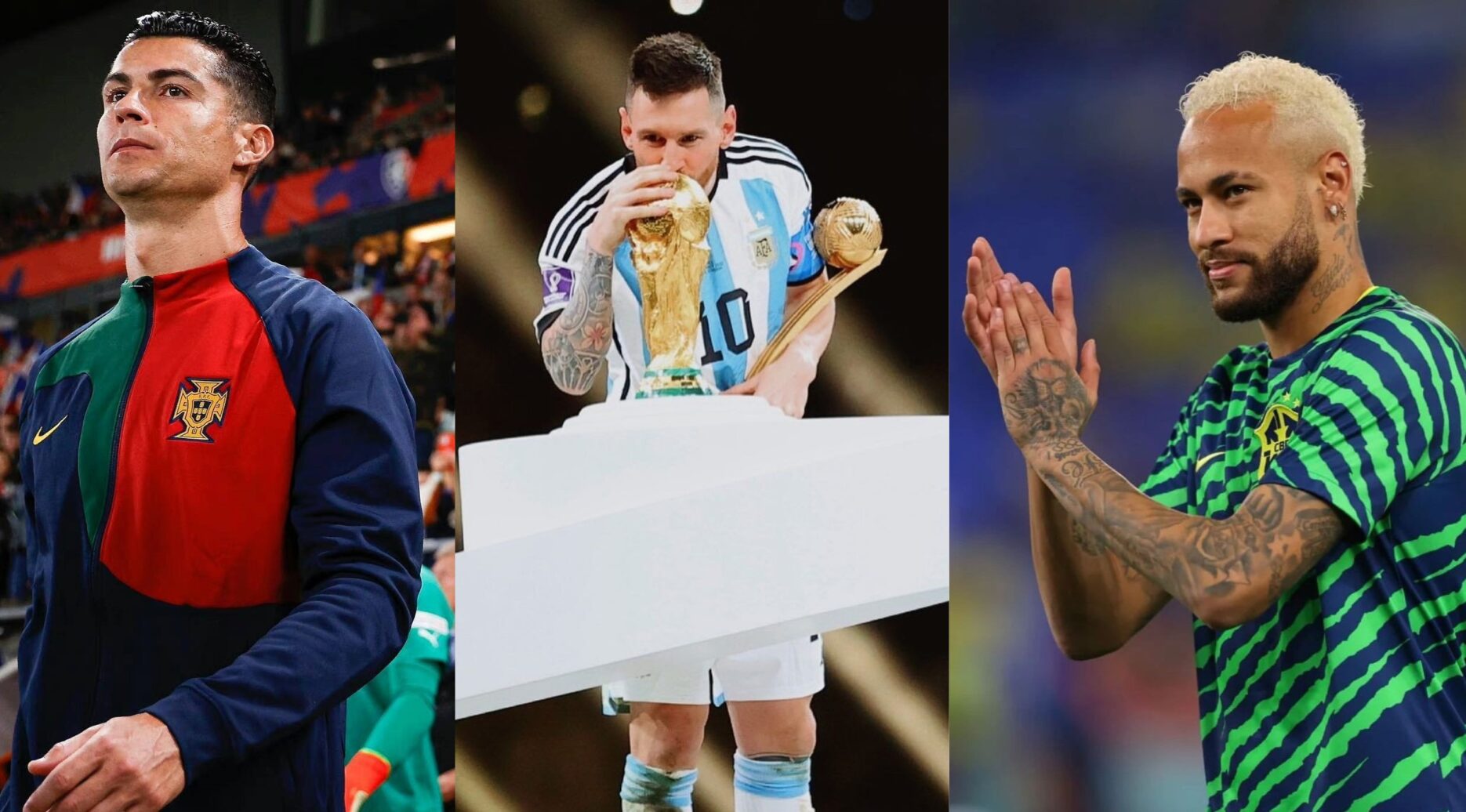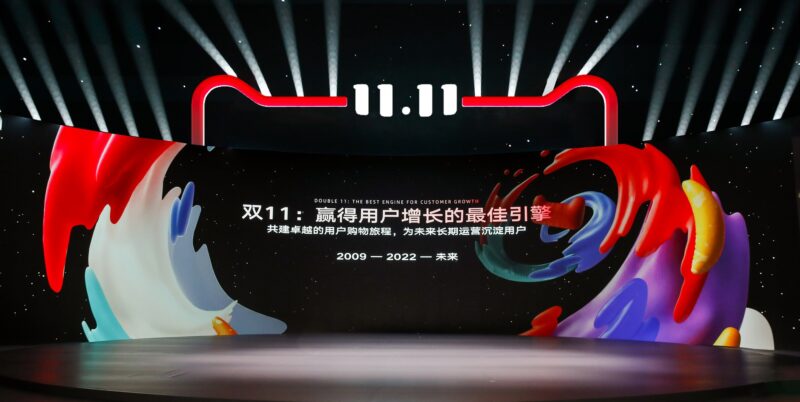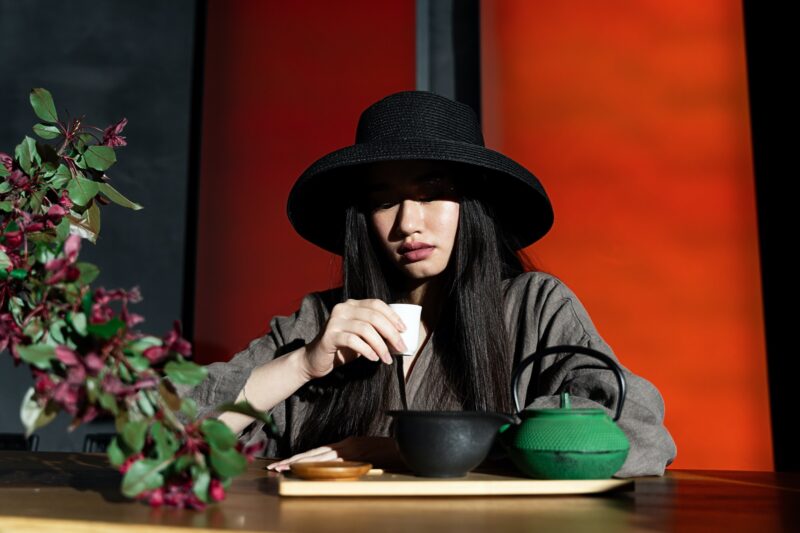When Argentina crowned champions at this year’s FIFA World Cup final after beating France in a penalty shootout on 18 December, it wasn’t just Argentinians who were euphoric. Also thrilled were football enthusiasts in China and the legendary forward Lionel Messi was at the centre of the fever. The national sensation even gave birth to the Internet slang Mei Chui, or Mei’s Flatters, referring to Messi’s Chinese admirers most of whom are post-90s with some post-80s by readapting the footballer’s name in Chinese, Mei Xi.
A popular Chinese video game known as Three Kingdom Tactics was reported to have partnered up with the Argentine national football team to launch a World Cup Zone on Hupu (a Chinese online community with a focus on sports and men’s interests) which was dedicated to the team. And players of this video game even went the extra mile to refashion the most common football match instrument, the vuvuzela into a Chinese version – a horn made of ivory – to show their support for Messi and his team during the football icon’s final World Cup.
Mei Chui, or Mei’s Flatters, refers to Messi’s Chinese admirers most of whom are post-90s and post-80s.
A horn was widely used as a sounding device on the battlefields in ancient China and was normally blown when a battle entered the final stages. Therefore, the creation leverages the double meaning of the Chinese word Chui (flattering and blowing) while giving a nod to the ancient wartime video game that is based on the history of the Three Kingdoms at the end of the Han Dynasty.
The endorsement of Messi in China is built not only upon Messi’s football skills but also a long-term relationship with his fans in China, especially China’s women’s football team, through his tenderness. The football star won over the country in 2013 when he made a donation of 15,100 RMB ($2,165.40 income from a charity sale of his signed shirt) to the women’s youth football team in Qiongzhong, a once-deprived region in the upper highlands of Hainan province.
While the donation made the headlines of domestic media including the state-owned People’s Daily, the kind gesture once again became a trending topic in China soon after Argentina’s victory in the quarter-final earlier in December, drawing in over 47 million views on China’s largest microblogging site Weibo as of 15 December.
Messi builds a long-term relationship with his fans in China, especially China’s women’s football team, through his tenderness.
Adding to the latest nationwide gratitude was a thank you message from Xiao Shan, head coach of Qiongzhong Women’s Football, where he recounted how Messi’s goodwill produced the first Hainan team representing China in an international football game and claimed three consecutive championships at the World Youth Cup between the years of 2015 and 2017. These interactions have naturally made the relationship between Messi and his followers in China more intimate and cemented.
Compared to the sentiment towards Messi, Chinese football fans’ love of another heroic player, Cristiano Ronaldo from Portugal might be purer – his professionalism – and maybe for his female admirers – his charming look.
Thanks to this personality, team Portugal has also won the hearts of the majority of China’s female football supporters. It is reported that during the Euro 2020 Championship held in 2021, jersey merchants of the Portuguese national team were the most sought after during last year’s mid-year online shopping extravaganza, aka 618, with female shoppers contributing to 38.61% of the total purchases, the highest percentage amongst other European counterparts.
This year, the Portuguese team has drawn in three Chinese brand partners, making it one of the second most pursued in China alongside the Spanish team, following team Argentina with a total of 8 Chinese brands from industries ranging from food and drink and video games to automotive and real estate.
Despite Portugal being knocked out of the World Cup, the 37-year-old rose to be an Internet celebrity on Chinese social media. Consolations from Chinese fans flooded in on Weibo after Ronaldo was seen breaking down in tears after losing to Morocco on 10 December, propelling the hashtag “We Feel Sorry For You Ronaldo” to draw in 240 million on Weibo and the news of the football idol training at Real Madrid’s training ground after the elimination has garnered 140 million reads.
Chinese fans flooded in on Weibo after Ronaldo was seen breaking down in tears after losing to Morocco.
The popularity seen between the two football sensations is in line with the latest Football Celebrity Influence Report produced by Kantar, where Ronaldo and Messi were ranked as the top 1 and top 2 most influential figures in China, followed by their Brazilian peer Neymar da Silva Santos Júnior, although Neymar has not seen nearly as much social engagement with the Chinese public as that observed by the former two.
This has been reflected in the three top runners’ commercial activities in the Chinese market. Whilst Neymar was reported to have been preferred by marketers in China during the last World Cup in 2018, Ronaldo and Messi have seen a more stable pursuit from Chinese brands including dairy giants Mengniu and Yili, Huawei, and one of China’s biggest short video platforms Kuaishou over the past few years.
The latest World Cup Trend Report published by China’s e-commerce giant Taobao on 14 December also gives a mirror of their commercial values. As Argentina entered their sixth World Cup finals with a victory over Croatia, while merchants of the Argentina team are trending in the hot search on Taobao’s marketplace, Messi has become the top-rank of football players’ online sales value index. It is reported that now the value possessed by Messi in China is twice as high as that of Ronaldo and four times as high as that held by Neymar.
Such public appearances coupled with the players’ continued occurrence under the spotlight in China’s digital space as the football sensation continues, will engrain those big names in the memories of the next generation of China’s football aficionados.









